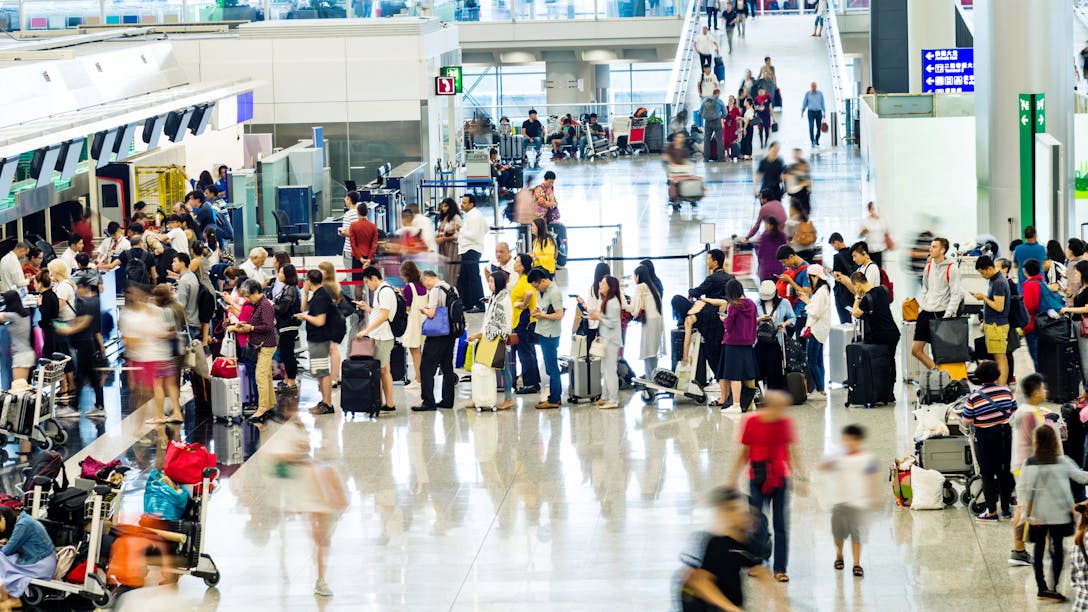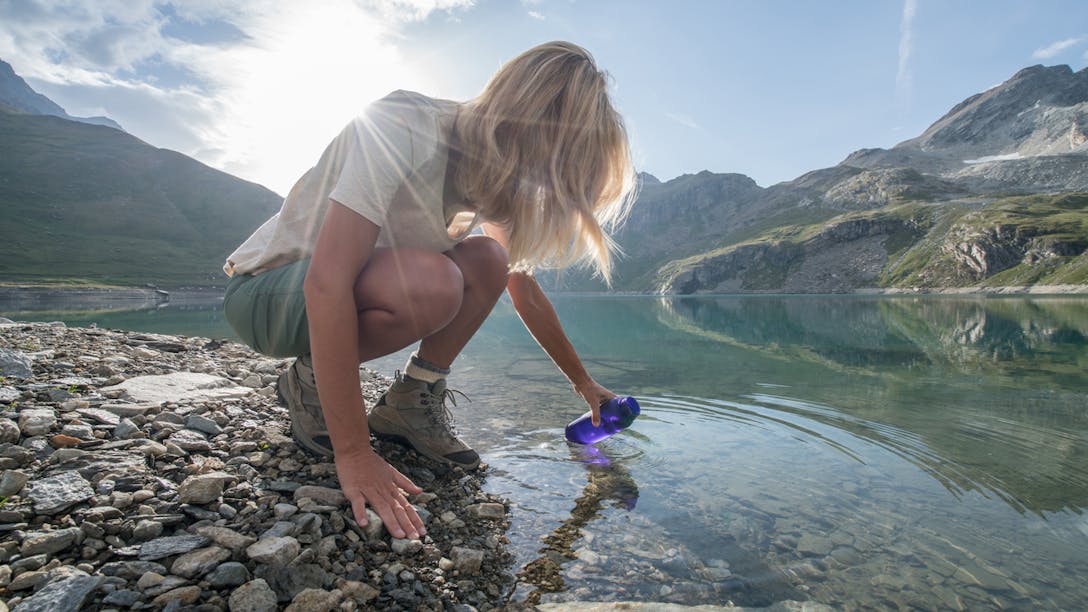How much harm has the industry endured at the hands of a significant downturn in the nation’s financial system, and can any value emerge?
While globalization endures regardless of conditions in the U.S., our participation can be measured by the state of national economy. Various factors shape how individuals and companies approach travel. In the wake of an international pandemic and inflation surges, has the travel industry taken one of largest hits of all?
The Global Event Effect
A Post-Pandemic World
Global events such as geopolitical tensions, natural disasters, and pandemics can significantly influence travel behavior.
Travel and tourism contributed over 9 percent to the global gross domestic product in 2019.[i] Prior to the start of the COVID-19 pandemic in 2019, tourism directly accounted for 6.4 million jobs in the U.S. The industry decreased to accounting for half of its previous percentage in national gross domestic product (GDP) in the first year of the pandemic.[ii]
The nation’s economy took a huge hit, with 23 million jobs lost at the start of the pandemic, leading to a short-lived recession in early 2020.[iii] Still in the event’s aftermath, we are currently wading through the highest level of inflation in decades.
Numerous business sectors saw decline in the demand for their products and services, but also in their supplies and inputs during government-mandated closures. This resulted in strict budget cuts and even closures. Even with government stimulus, both businesses and individuals found themselves unable or unwilling to travel, even after shutdown restrictions were lightened and eventually lifted.

Travel in an Uncertain Economic Landscape
The good, the bad, and the hybridization
Expansion in times of thriving business leads to greater travel needs and opportunities. During heightened growth, companies create allocations for larger budgets for business travel to accommodate client meetings, conferences, trade shows, and more. A healthy economy similarly boosts consumer confidence and encourages greater spending on leisure travel. Vacations, holidays, and weekend getaways increase as disposable incomes rise. Additionally, travelers may allow themselves to splurge on luxury expenses, fine dining, and unique adventures.
Alternately, economic deterioration leaves less room for travel and other optional perks. Travel spending diminished in the wake of the COVID-19 pandemic for both companies and individuals. Additionally, fear of the unknown contributed to less spending. Declines in revenue caused companies to omit travel where possible, instead prioritizing essential meetings and minimizing expenses. This shift created a ripple effect throughout the travel industry, leading to hotel closures, layoffs in airlines, and decreased demand for tourism services.
During such recessions, the disparity between leisure and business travel also becomes evident. Leisure travelers may seek budget-friendly options, prioritizing local experiences and lower-cost accommodations, while business travelers often adopt a more cautious approach, reducing travel frequency and opting for economy class rather than premium options.
A New Normal in Business
Businesses adjust their travel strategies according to their financial health. During lean times, firms cut travel expenses or opt for virtual meetings in lieu of costly trips. The shift decreases expenditures while reflecting a broader trend where companies are re-evaluating the necessity of travel by leveraging technology for remote collaboration.
Technology’s Role
From the shift in business travel behavior stemmed new technological advancements. The proliferation of mobile apps and online platforms has made it easier for both leisure and business travelers to access real-time information, attend conferences and assemble via remote meeting software and applications, and even—yes, book travel once restrictions were lifted—as features such as AI-driven recommendations, online reviews, and competitive pricing enabled travelers to make informed choices, resulting in a more personalized travel experience.
Evolving tech accelerated the shift toward contactless and seamless travel solutions. From digital boarding passes to cashless payments and online check-ins, the aviation and hospitality sectors are leveraging technology to enhance convenience and safety. This trend, especially heightened by the COVID-19 pandemic, has reshaped expectations around hygiene and efficiency, pushing other businesses to adopt similar practices to meet the demands of health-conscious travelers.
Technology has played a pivotal role in influencing travel behavior in the modern economy. The rise of remote work and virtual meetings has made it easier for employees to work from anywhere, allowing them to blend work and leisure seamlessly. At the same time, travel apps have improved accessibility to information and services, enabling travelers to make informed decisions quickly and conveniently. Mobile applications now provide real-time updates, booking capabilities, and personalized itineraries at our fingertips, reducing the stress associated with planning trips. AXA Partners developed the MyTripCompanion portal to optimize their user experience in accessing services travelers most often require. The app provides fast and easy assistance with local health and medical support, up-to-date travel information and requirements, country guides, and more.
Adjusting Travel Models
The economic impact has led to an evolution in travel patterns. As businesses adopt more flexible work arrangements, we're seeing a rise in travel where employees combine business trips with leisure activities. This hybrid model not only allows organizations to save on travel expenses, but also enhances employee satisfaction and productivity as they can unwind after a work commitment.
Hotels, airlines, and travel companies have begun to cater to this trend by offering packages that include both work and play elements, such as conference facilities with leisure amenities, or exclusive bundled deals combining business accommodations with leisure activities. This dual-purpose approach not only enriches the travel experience, but also maximizes the value of each trip. Travelers can now enjoy the benefits of a corporate travel budget while exploring new destinations, which helps create a more well-rounded experience.

Outlook
Better Value Sought
As the economy fluctuates, both business and leisure travelers have become more value conscious. Companies are cutting back on extravagant expenses to minimize overhead costs. This has led to a greater emphasis on budgeting and cost-effective travel solutions. Organizations opting for more economical accommodations or tweaking their travel policies to encourage employees to book airfare in advance for the best prices, is a prime example.
Leisure travelers are also more discerning with their budgets. With the rising costs of living, vacationers are increasingly looking for deals, discounts, and packages that provide value without sacrificing experience. Travel brands that respond to this demand for affordability and are transparent with their pricing can gain a competitive edge in a market that is busier and more price-sensitive than ever before.
Sustainability as a Key Driver in Travel Choices
A notable shift toward sustainability has also occurred in the business travel sector. Corporations are becoming more conscious of their carbon footprints, prompting many to implement policies that promote sustainable travel practices. Companies may encourage employees to travel via train rather than fly for shorter trips, select eco-certified hotels, and support local businesses that emphasize sustainable practices. Many organizations are now prioritizing travel options that minimize environmental impacts, reflecting a broader societal shift towards sustainability.
Leisure travelers are also adopting sustainability. A growing number of consumers factor in an organization's environmental commitment when choosing travel suppliers. Tourists are leaning toward eco-friendly accommodations, tours, and activities. Many are opting to vacation at destinations that promote conservation and environmental responsibility. This trend has led to a rise in eco-tourism, where travelers seek experiences that allow them to engage with nature and the local culture without causing harm.
More Flexibility and Personalization
As remote work becomes an integral part of the corporate landscape, employees are increasingly choosing destinations that offer a conducive environment for remote productivity. This has led to a spike in demand for locations with reliable internet connectivity, comfortable workspaces, and a vibrant local culture. Cities that may not have been conventional business travel hubs are now welcome avenues for remote workers looking to enjoy both professional and personal experiences.
The shift towards hybrid travel models has further intensified the demand for greater flexibility and personalization in travel services. Business travelers are now seeking customizable itineraries that allow them to adjust their schedules according to personal interests, while leisure travelers expect similar opportunities whenever they might be on the road for work. This has led to the emergence of specialized travel agencies and platforms that focus on crafting tailored travel experiences that resonate with individual preferences.
Travel providers are responding by enhancing their services, offering options like flexible cancellation policies, last-minute booking deals, and personalized recommendations based on traveler profiles. By prioritizing customer preferences and adapting to the evolving needs of travelers, companies are positioning themselves to stand out in an increasingly competitive market.
Local Economies Can Benefit
The trend of remote work and extended business trips has led to an increase in local economic activity, particularly in regions that were previously overlooked by traditional business travelers. Smaller towns and rural areas could benefit substantially as remote workers seek scenic and quieter environments to conduct their business. This influx of travelers contributes to local economies by increasing patronage at hotels, restaurants, and local attractions. Travelers are increasingly seeking experiential and meaningful travel opportunities instead of traditional vacation packages. This evolution is fueled by the growing awareness of sustainability, social responsibility, and a desire for authentic experiences. As a result, travelers today may prioritize eco-friendly accommodations, local artisans, and community-based tourism over mass-market options.
A New Mindset
While the immediate impacts of economic downturns are often severe, historical trends indicate that travel behavior can rebound over time. As economies recover, both business and leisure travel tend to experience a resurgence. A renewed emphasis on face-to-face interactions—especially in business—often drives companies to reinstate travel budgets, recognizing the value of in-person meetings in fostering relationships, increasing productivity, and ultimately, closing deals.
Leisure travel can experience a surge as individuals who previously curtailed their trips may choose to resume exploration, adventure, and relaxation. This demand may lead to increased bookings and travel spending, as consumers take advantage of promotional offerings and discounted rates that shape the travel landscape. The travel industry frequently responds to this rebound with attractive deals, allowing consumers to explore new destinations at a reduced cost, further stimulating demand. The resulting outcomes may contribute to boosting national and global economies.


